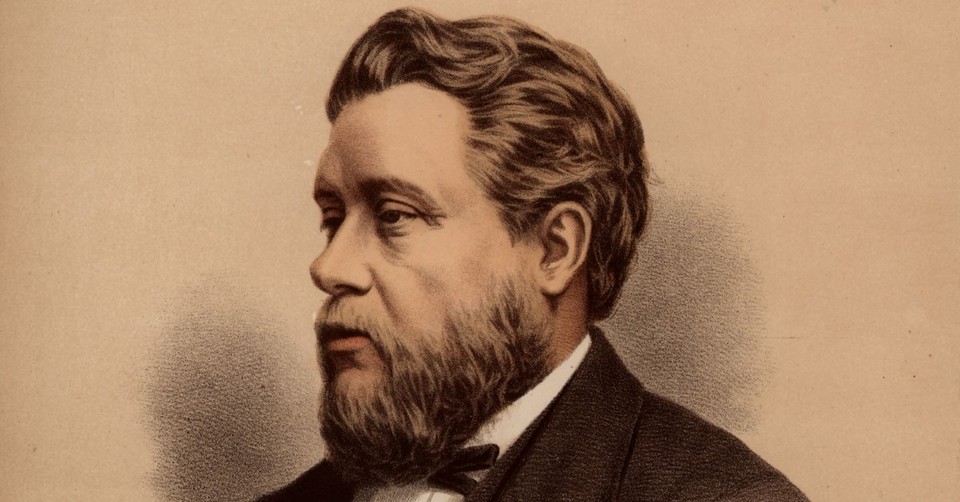5 Ways We Can All Relate to Charles Spurgeon

At first glance, most of us have little in common with Charles Spurgeon. Many of us who grew up around church have heard the name of Charles Spurgeon but know little about who he was or what he is remembered for. Ask any pastor, and they will surely know quite a bit about this man who continues to influence us today. Spurgeon has been called the "prince of preachers," and one could say that he was a sort of Billy Graham in his time. He preached the gospel unapologetically in a way that was understandable to all.
Spurgeon's Legacy of Accomplishments
Charles Spurgeon became a pastor at age 19, and with his masterful speech and strong grasp of theology, was already impressing those who heard him. He was also a strong writer and wrote his first gospel tract at the same age. Over time, Spurgeon gathered a congregation of around 10,000 people. He founded a university, compiled his own hymnal, and even penned his own hymns. He wrote feverishly publishing his own books on prayer, devotionals, poetry, and contributed to several magazines, including his own, "The Sword and the Trowel." He oversaw an orphanage and founded a charity organization that still continues work around the globe today.
As far as accomplishments, it really seems there was nothing Spurgeon couldn’t do. One could say that Spurgeon was well ahead of his peers and that his legacy continues to stand head and shoulders above most of us as far as his devotion to the faith, extensive knowledge, and eloquence with words. Yet, in spite of his deep devotion to the faith and his continued fame, a deeper look reveals that Spurgeon is also extraordinarily relatable to the average person today. Here are five reasons why:
1. Spurgeon Understood Pain
“The Lord gets his best soldiers out of the highlands of affliction.”
Charles Spurgeon’s life was not free of pain, and he suffered from depression and physical ailments throughout his life. There is one particular event that occurred during his ministry that caused great depression and was said to bring him to tears when he discussed it.
As Spurgeon was attracting many listeners to his sermons, he arranged to preach at Surrey Music Hall in London. Boasting a seating capacity of over 10,000, the hall held a larger audience than most buildings of the time and was filled to capacity when Spurgeon rented it for Sunday services. Yet the excitement of the large crowd soon gave way to tragedy. Early into a service, someone in the crowd shouted "fire!" Hearing this, people went running towards the doors pushing, shoving, and creating chaos and panic. In the aftermath, seven people were killed and many others injured. Spurgeon was deeply saddened and almost gave up preaching because of it.
2. Spurgeon Understood Criticism
“Brother, if any man thinks ill of you, do not be angry with him; for you are worse than he thinks you to be.”
If there was such a thing as a megachurch in the 1800s, it was the church of Charles Spurgeon, who was regularly attracting thousands each week to hear his sermons. People were drawn to this young preacher who spoke plainly and directly. As Spurgeon was uneducated and unpolished, this brought criticism from many others who took issue with him and his approach.
At the end of his life, Spurgeon again drew criticism for defending the gospel against those who would water it down, or as Spurgeon called them, those who were "downgrading" the gospel. As many preachers were moving away from teaching the inerrancy of Scripture, and allowing secular ideas to mix with those of the Bible, Spurgeon denounced the practice. This became known as The Downgrade Controversy, and Spurgeon continued to speak out through the final months of his life. This again brought him a great deal of criticism; yet, time has proven his words to be well spoken and greatly needed.
3. Spurgeon Understood How Busy Life Can Be
“We miss a thousand blessings because we are too busy to commune with God. We are here, there, and everywhere, except where we ought to be.”
Charles Spurgeon surrounded himself with a whirlwind of activity and never seemed to stop moving. However, this constant movement and expenditure of energy reminded him that in order to keep going, he must slow down and rest. He did this simply by utilizing a calendar and keeping to his schedule. With all the demands pressing upon him, he scheduled time to simply be with family and even turned down an opportunity to lecture at Yale because it simply didn’t fit into his routine. Following a routine, and making sure that he had time to rest and time to be at work helped to keep his busy life balanced.
4. Spurgeon Understood the Importance of Simple Faith
“I commend to you the study of instructive books, but above all I commend the study of Christ. Let Him be your library.”
In a time of great academic and intellectual growth, Spurgeon preferred to be a plain-spoken preacher who could connect with anyone in any audience and found it to be an effective means of sharing the gospel. Although he read, wrote, and preached extensively, Spurgeon himself never attended college, nor did he attend seminary. This fed his desire to make the Scriptures accessible and available to everyone.
Spurgeon was a Baptist minister, but he intentionally cast off any label beyond simply being a believer in Christ: "I do not hesitate to take the name of Baptist, but if I am asked what is my creed, I reply, ‘It is Jesus Christ.’” It encourages us to speak the truth of God in plain, understandable language, so that we may also present Christ to our community in the same meaningful way.
5. Spurgeon Understood the Need for Sincerity and Humility
“Sincerity makes the very least person to be of more value than the most talented hypocrite”.
As his preaching became more and more popular, Spurgeon became somewhat of a "rock star" throughout London and eventually the world. As his fame spread, and as the crowds grew, he strove to hold tight to his humility and to remember that he was merely a servant of Christ. He remembered that his sincere faith and not his own skills were what God would continue to use. So for us, whether we find ourselves as the center of attention, or forgotten on the sidelines, our true measure is found in Christ and how we live each day to his glory, regardless of how important we think we are or aren’t.
We Can All Certainly Relate to Spurgeon
Volumes have been written by and about Charles Spurgeon. Yet, perhaps one of the most important lessons we can learn from his extraordinary life is that he was ultimately a regular person, just like us, striving to make Christ the center of his life and to make him known to as many people as would listen. In this, our lives can be just as full and rewarding, and God will move through us in ways we may not even know or expect.
Further Reading:
20 Powerful Quotes from Charles Spurgeon
The Love of Charles and Susannah Spurgeon
45 Charles Spurgeon Quotes to Uplift Your Faith Today
Jason Soroski is a homeschool dad and author of A Journey to Bethlehem: Inspiring Thoughts for Christmas and Hope for the New Year. He serves as worship pastor at Calvary Longmont in Colorado and spends his weekends exploring the Rocky Mountains with his family. Connect on Twitter, Instagram, or at JasonSoroski.net.
Photo credit: ©Getty Images/Thinkstock/Photos.com
This article is part of our People of Christianity catalog that features the stories, meaning, and significance of well-known people from the Bible and history. Here are some of the most popular articles for knowing important figures in Christianity:
How Did the Apostle Paul Die?
Who are the Nicolaitans in Revelation?
Who Was Deborah in the Bible?
Who Was Moses in the Bible?
King Solomon's Story in the Bible
Who Was Lot's Wife in the Bible?
Who Was Jezebel in the Bible?
Who Was the Prodigal Son?

Originally published January 30, 2019.





